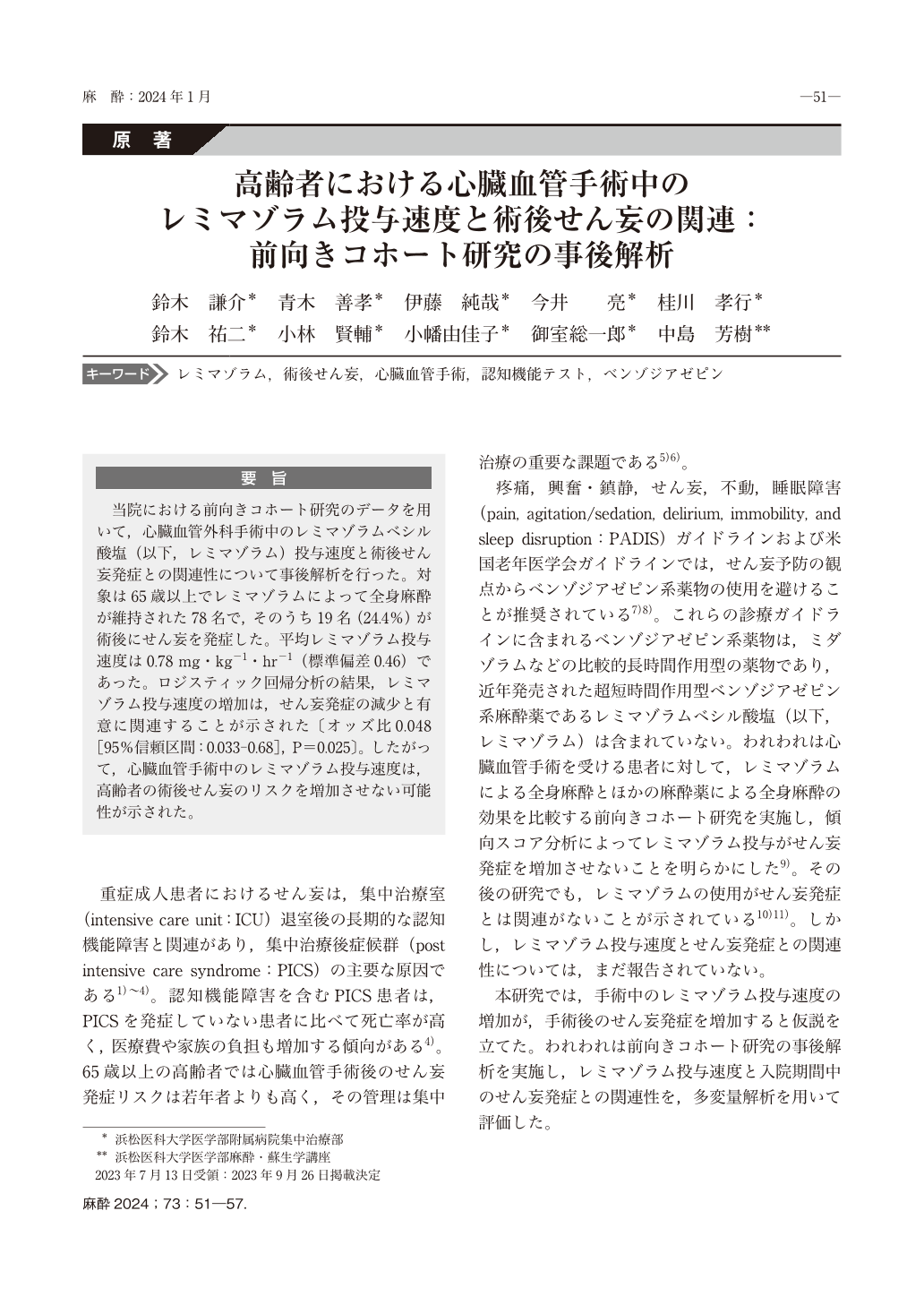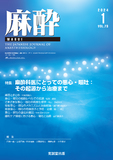Japanese
English
- 有料閲覧
- Abstract 文献概要
- 1ページ目 Look Inside
- 参考文献 Reference
要旨
当院における前向きコホート研究のデータを用いて,心臓血管外科手術中のレミマゾラムベシル酸塩(以下,レミマゾラム)投与速度と術後せん妄発症との関連性について事後解析を行った。対象は65歳以上でレミマゾラムによって全身麻酔が維持された78名で,そのうち19名(24.4%)が術後にせん妄を発症した。平均レミマゾラム投与速度は0.78mg・kg−1・hr−1(標準偏差0.46)であった。ロジスティック回帰分析の結果,レミマゾラム投与速度の増加は,せん妄発症の減少と有意に関連することが示された〔オッズ比0.048[95%信頼区間:0.033-0.68],P=0.025〕。したがって,心臓血管手術中のレミマゾラム投与速度は,高齢者の術後せん妄のリスクを増加させない可能性が示された。
Background:The impact of intraoperative remimazolam administration rate on postoperative delirium is unclear.
Methods:Using data from a prospective cohort study conducted at our institution, we performed a post hoc analysis of the association between the administration rate of remimazolam during cardiovascular surgery and the incidence of postoperative delirium.
Results:The study population was 78 patients aged ≧65 years who were maintained on general anesthesia with remimazolam. Among them, 19 patients(24.4%)developed delirium postoperatively. The mean remimazolam administration rate was 0.78 mg・kg−1・hr−1(standard deviation 0.46). A logistic regression analysis demonstrated a significant association between an increase in the remimazolam administration rate and a decrease in the incidence of delirium(odds ratio 0.048[95%CI:0.033-0.68], P=0.025).
Conclusions:These results suggest that a higher administration rate of remimazolam during cardiovascular surgery does not negatively influence the incidence of postoperative delirium in older adults.

Copyright © 2024 KOKUSEIDO CO., LTD. All Rights Reserved.


